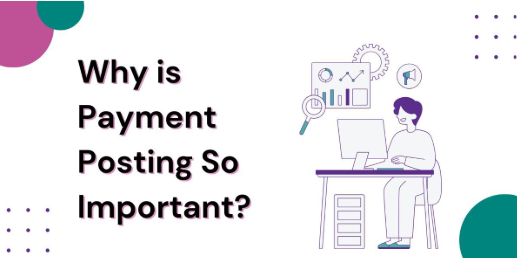Discover how outsourcing mental health billing can transform your practice in 2025, reducing denied claims by 40% while ensuring HIPAA compliance and boosting your revenue cycle.
The New Reality of Mental Health Billing in 2025
Let’s face it, bro—mental health billing has never been a walk in the park, but in 2025, it’s evolved into something that would make even the most seasoned practice managers sweat. The behavioral health landscape has transformed dramatically since the pandemic years, with telehealth expansions, new diagnostic codes, and ever-changing reimbursement models creating a perfect storm of complexity.
As a mental health provider, you got into this field to help people heal—not to spend countless hours wrestling with claim rejections and authorization nightmares. Yet here we are, in a world where the mental health billing process has become so specialized that it’s practically its own discipline.
“Empowering Minds. Simplifying Billing.”
The statistics tell the story: mental health practices now lose an average of 14% of potential revenue to billing errors and denied claims—up from 9% just three years ago. Meanwhile, the administrative burden has increased by nearly 30%, with staff spending approximately 15 hours per week just on billing-related tasks.
The Top 5 Mental Health Billing Challenges Crushing Your Practice
1. Pre-authorization Hell
Remember when pre-authorizations were the exception rather than the rule? Those days are long gone. In 2025, nearly 70% of mental health services require some form of pre-authorization, with insurers changing their requirements quarterly—or sometimes without notice at all.
The kicker? Each insurer has its own portal, its own forms, and its own timeline. Miss one detail, and you’re looking at denied claims and delayed payments that can stretch for months.
2. The Ever-Expanding Universe of Codes
The 2025 updates to diagnostic and procedural codes have introduced over 200 new mental health-specific codes, with particular emphasis on telehealth services and specialized therapeutic approaches. What used to be a straightforward session code now requires detailed specificity about:
- Delivery method (in-person vs. virtual)
- Time increments (now in 5-minute blocks for some payers)
- Therapeutic modality distinctions
- Crisis vs. maintenance session types
Each miscoded service risks rejection, creating a behavioral health revenue cycle nightmare that can quickly spiral out of control.
3. The Telehealth Compliance Maze
Telehealth is here to stay, but the regulatory landscape continues to shift like quicksand. Interstate practice requirements, platform security standards, and reimbursement rules vary wildly depending on:
- Patient location at time of service
- Provider location and licensure
- Insurance company policies
- Federal vs. state regulations
With penalties for non-compliance reaching new heights in 2025, the stakes couldn’t be higher for maintaining perfect HIPAA compliance while delivering remote care.
4. Cash Flow Disruptions
The average time from service to payment has stretched to 45 days in 2025 for mental health practices—significantly longer than the 32-day average for general medical services. This extended behavioral health revenue cycle creates serious cash flow challenges, especially for smaller practices and those serving high volumes of Medicaid patients.
When you combine delayed payments with increasing denial rates, many quality providers find themselves in a financial chokehold that limits growth and threatens sustainability.
5. The Audit Anxiety Factor
With Medicare, Medicaid, and commercial insurers all ramping up their audit activities in 2025, mental health providers face unprecedented scrutiny. Documentation requirements have become so specific that even minor inconsistencies between session notes and billed codes can trigger costly reviews.
The psychological toll of this constant audit risk creates a background stress that affects clinical care and practice morale—exactly what providers don’t need when trying to deliver quality mental health services.
Why In-House Teams Are Drowning in Mental Health Billing Complexities
Your in-house billing team might be dedicated and hardworking, but they’re facing challenges that make success nearly impossible:
The Specialization Problem
General medical billers simply don’t have the specialized knowledge required for mental health billing in 2025. The nuances of behavioral health coding, the specific documentation requirements, and the unique payer policies create a steep learning curve that many never fully master.
The Technology Gap
Most small to mid-sized practices simply can’t afford the sophisticated billing software and AI-powered verification tools that have become essential in navigating today’s complex reimbursement landscape. Without these tools, your team is essentially bringing a knife to a gunfight.
The Staffing Reality
In an era where qualified billing specialists are in high demand, turnover has become a major problem. Each time you lose a team member, you’re looking at months of training a replacement—all while claims pile up and revenue stagnates.
The Focus Dilemma
When your clinical staff gets pulled into billing issues, their attention divides between patient care and administrative headaches. This divided focus leads to compromises that ultimately hurt both your practice’s financial health and your clinical outcomes.
The Outsourcing Advantage: Why Specialized Mental Health Billing Partners Are the 2025 Solution
Making the shift to therapy billing outsourcing isn’t just about convenience—it’s about transforming your practice’s financial foundation. Here’s what specialized partners bring to the table:
1. Expertise That Scales
Dedicated mental health billing companies employ specialists who live and breathe behavioral health codes, regulations, and payer policies. This specialized knowledge translates directly to:
- 40% fewer denied claims on average
- 30% faster resolution when claims are questioned
- Proactive identification of reimbursement opportunities
2. Technology Without the Investment
Leading mental health billing partners deploy enterprise-level technology that would cost individual practices hundreds of thousands to implement:
- AI-powered claim scrubbing tools
- Real-time eligibility verification
- Automated prior authorization tracking
- Custom analytics dashboards showing your practice’s financial health
3. Bulletproof HIPAA Compliance
With specialized partners handling your billing, you gain access to robust HIPAA compliance frameworks that evolve with changing regulations. This includes:
- Regular security audits
- Staff certification and training
- Business Associate Agreements that protect your practice
- Documented compliance protocols that satisfy even the most rigorous auditors
4. Focus Reclaimed
Perhaps the most valuable benefit is what outsourcing gives back: focus. When you’re not managing billing headaches, you and your team can return to what you do best—providing exceptional care to patients who need your expertise.
The Numbers Don’t Lie: Real-World Impact of Mental Health Billing Outsourcing
Practices that partner with specialized billing services in 2025 are seeing game-changing results:
- Denied claims reduced by an average of 42%
- Days in A/R (accounts receivable) shortened by 13-17 days
- Net collections increased by 8-12% within the first six months
- Administrative staff time reduced by 22-30 hours per week per provider
- Compliance violation risks decreased by 65%
For a typical three-provider practice, these improvements translate to approximately $75,000-$120,000 in additional annual revenue—not counting the value of reclaimed time and reduced stress.
Making the Smart Move: Your 2025 Billing Strategy
The behavioral health revenue cycle has become too complex and too consequential to treat as a side function of your practice. The specialists who understand the unique challenges of mental health billing can transform this burden into an advantage.
By partnering with experts who focus exclusively on these challenges, you’re not just outsourcing a task—you’re upgrading your entire revenue management strategy to match the complexity of the 2025 healthcare landscape.
Take the First Step Toward Billing Freedom
At Malakos Healthcare Solutions, we specialize exclusively in mental health billing and behavioral health revenue cycle management. Our team of specialized billing experts understands the unique challenges you face and has developed proven systems to overcome them.
Ready to stop worrying about denied claims and start focusing on your patients again? Schedule your free, no-obligation consultation today.
- Email: support@malakoshealthcare.com
- Website: www.malakoshealthcaresolutions.com
- Phone: 307-441-3431
Don’t let another day of billing headaches stand between you and the practice you envisioned. Make therapy billing outsourcing your competitive advantage in 2025.









